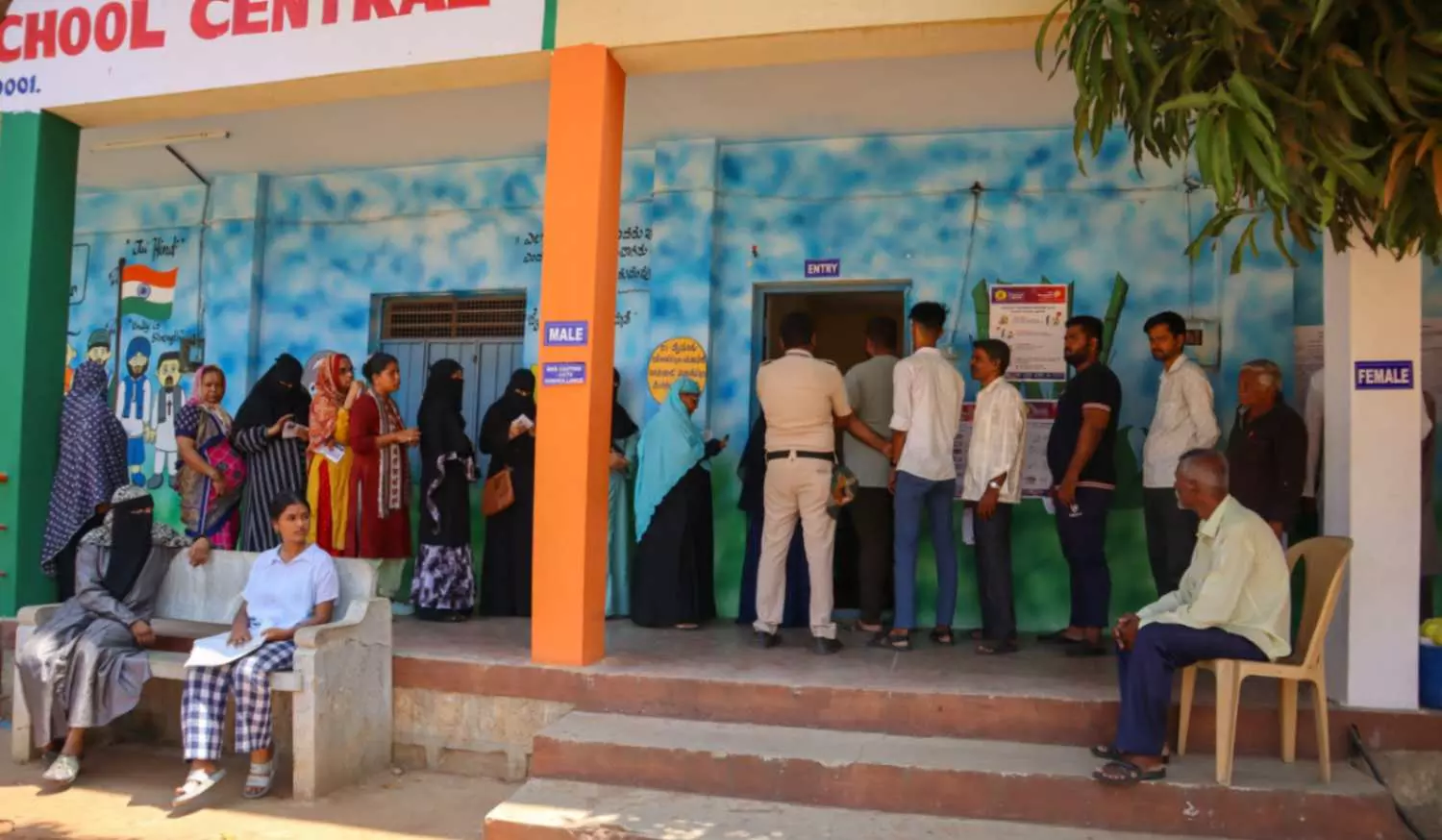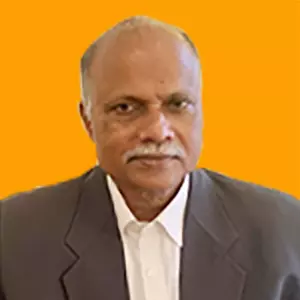
- Home
- India
- World
- Premium
- THE FEDERAL SPECIAL
- Analysis
- States
- Perspective
- Videos
- Sports
- Education
- Entertainment
- Elections
- Features
- Health
- Business
- Series
- In memoriam: Sheikh Mujibur Rahman
- Bishnoi's Men
- NEET TANGLE
- Economy Series
- Earth Day
- Kashmir’s Frozen Turbulence
- India@75
- The legend of Ramjanmabhoomi
- Liberalisation@30
- How to tame a dragon
- Celebrating biodiversity
- Farm Matters
- 50 days of solitude
- Bringing Migrants Home
- Budget 2020
- Jharkhand Votes
- The Federal Investigates
- The Federal Impact
- Vanishing Sand
- Gandhi @ 150
- Andhra Today
- Field report
- Operation Gulmarg
- Pandemic @1 Mn in India
- The Federal Year-End
- The Zero Year
- Science
- Brand studio
- Newsletter
- Elections 2024
- Events
- Home
- IndiaIndia
- World
- Analysis
- StatesStates
- PerspectivePerspective
- VideosVideos
- Sports
- Education
- Entertainment
- ElectionsElections
- Features
- Health
- BusinessBusiness
- Premium
- Loading...
Premium - Events

Instead of asking a would-be voter to bring proof for inclusion in the electoral roll, the Election Commission should bring forward evidence to debar a would-be voter from the electoral roll
It is wholly welcome that the Supreme Court has directed the Election Commission to publish the list of all the 65 lakh people whose names have been struck off the electoral rolls, along with the reasons for such removal. It is also welcome that the Court has directed the EC to accept Aadhaar as valid proof of identity. These moves would go a long way in shielding democracy from the arbitrary attack launched against it by the Election Commission, with its decision to undertake a Revision exercise just months before the next assembly elections.
However, this does not quite undermine the basis of the EC’s attempt to remove those it considers non-citizens from the electoral rolls. India is not like Britain, which allows, besides its own citizens, the citizens of Ireland and the larger Commonwealth to vote in the British elections, so long as they register to vote and have not rendered themselves ineligible by being convicted of a crime. India allows only citizens to vote, and that is reasonable. The issue really is how we should get around to establishing the validity or otherwise of a would-be voter’s citizenship claim.
State has to prove the guilt of a person
Innocent until proven guilty is a basic principle of common law jurisprudence. Indian laws, like those of the United States, are derived from the common law system of England. In India, it is up to the state to prove the guilt of a person accused of a crime, and if the prosecution fails to establish the alleged guilt, the accused walks free. The Prime Minister and the Home Minister downwards, lots of people who today hold high office have benefitted from this principle.
Also Read: Vote theft controversy: Why the Supreme Court must step in
The onus of proof is on the accuser, not on the accused. There is every reason to apply this principle to the suspicion that a would-be voter is ineligible to vote, on account of being a foreign national. The onus should be on the state, or the Election Commission, to prove that a would-be voter is not an Indian citizen, for that person to be excluded from the voters’ list.
Clear violation of core principle
In other words, the entire premise of asking would-be voters to submit proof to be included in the electoral roll, as is the case with the ongoing Special Intensive Revision of the electoral roll in Bihar, is violative of the core principle of India’s common law system. If the Election Commission has reason to believe that someone ineligible has been included in the electoral roll, or some application for inclusion in the electoral roll should be rejected for a particular reason, it should cite that evidence and prove its contention of ineligibility, to exclude the voter. It should not be up to the voter to prove that he or she is eligible to vote.
The tricky issue of documentary proof
Except for parts of southern and western India, the country is too ill-governed for its citizens to have documentary proof of their citizenship. Births and deaths are not comprehensively registered. The proportion of people with passports is in the single digits. Public sector employment is limited to about two per cent of the people. Matriculation was far from routine for cohorts born before the turn of the millennium. Caste certificates are generally obtained by people who pursue higher studies or apply for civil service jobs — and these constitute tiny proportions of the people. Land records are so messed up that professed ownership of land does not guarantee actual possession, nor is actual possession reflected in recorded ownership. In any case, 56% of Indian households, 71% in the case of Bihar, do not own land, according to the Socio-economic and Caste Census of 2011, which faces criticism for leaving it to the respondent to self-identify their caste, instead of asking them to choose from a list of castes prepared by the Census authority, not for other findings.
In Kerala or Tamil Nadu, it would be fair to ask people who claim to be born in the state to produce their birth certificate as proof, but not elsewhere in the country
In Kerala or Tamil Nadu, it would be fair to ask people who claim to be born in the state to produce their birth certificate as proof, but not elsewhere in the country. Certainly not in Bihar or Uttar Pradesh. The Election Commission has, in a burst of generosity, allowed people who cannot produce their own birth certificate to bring out their parents’ birth certificate. If you cannot blow out a candle, why, you must be qualified to dowse a raging forest fire!
'Wrong narrative by EC'
When Judges of the Supreme Court debate the merits of the evidentiary proof demanded by EC for a would-be voter to prove their bona fides, they choose to go along with the wrong narrative started by the EC, namely, that it is up to the individual to prove that he or she is not a foreign national, even when they make the task of proving citizenship easier. Imagine the following scenario: someone is asked to narrate the Ramayana, and begins to tell the tale of Shantanu and his son, Devavrata, who goes on to become Bheeshma. He identifies Bheeshma’s mother as Satyavati, but a better-informed member of the audience corrects him, pointing out that Bheeshma’s mother was Ganga. The Justices of the Supreme Court are like that learned member of the audience who corrects the misidentification of a character in the Mahabharata, instead of pointing out that the tale being told is not the one that was asked for.
Vote theft row: Rahul shows why Opposition Leader's role is vital
After the 2003 amendment to the citizenship law, someone is deemed an Indian citizen if the person was born in India, had an Indian as one parent, and the other parent was not an illegal immigrant at the time of the child’s birth. The Election Commission’s supposedly expansive accommodation, without question, of all those who figure on the 2003 electoral roll and their offspring as eligible voters is not really all that accommodating.
Cards galore, but..
Consider someone who was born after 2003, at home, dropped out of school after class 5, is landless, could not even dream of a public sector job, has been rendered homeless by floods on three occasions, the floods having swept away all possessions, but has an Aadhaar and a ration card. Under the original conditions of SIR, he would have none of the 11 documents that rule him eligible to vote. On the other hand, the sensible thing to do would be to include him in the voters’ list and exclude him, if and only if, someone comes up with positive proof that he is, in fact, an illegal immigrant.
Except for parts of southern and western India, the country is too ill-governed for its citizens to have documentary proof of their citizenship. Births and deaths are not comprehensively registered.
Jus soli (the right of the soil) and jus sanguinis (the right of blood) are two principles used to establish nationality. If you are born in a land, you should have the right to be citizen of the land. Some countries follow descent, you must be born of nationals, regardless of where you were born, to be a citizen. In a liberal world, one or the other, inclusively, not mutually exclusively, should entitle a person to citizenship.
An Indian techie in the US, who marries an undocumented immigrant from Mexico, would see his child born in the US grow up an American citizen. Now, Trump has moved to end birthright citizenship, and seeks to deny citizenship to a child if either parent was present illegally in the US. How many Indians think that it is fair to deny US citizenship to a child born to Indian parents while they were working in the US, because the immigration status of either parent was temporarily not all right?
Such considerations are immaterial to the eligibility of someone in India to vote, if the onus for proving someone’s ineligibility is placed, as it should be, on the Election Commission.
(The Federal seeks to present views and opinions from all sides of the spectrum. The information, ideas or opinions in the articles are of the author and do not necessarily reflect the views of The Federal)


